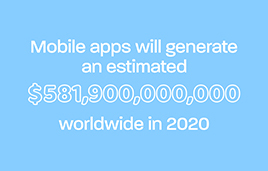Are you ready to start building that great software your company needs? You have identified problems that could be solved with the right mix of careful thought and technical innovation. The next step is developing that amazing application that is going to revolutionize everything, rocket your team’s efficiency, and make your business hum.
So, now what…?
The biggest challenge for most businesses in selecting a development firm is the very reason they are hiring one. If your core business is not software development, how do you choose the right development firm to bring your ideas to life? How do you know they understand what you need and can ensure you actually get a solution that solves your problems in a reasonable amount of time for a reasonable cost? How can you tell if they really know what they are doing when you are not a developer yourself?
While there is no perfect test, there are a few things to keep in mind that will help you find the right fit for your project.
1. Not every team is right for every job.
Simply put, there is no single, perfect team. Do you have a large-scale enterprise system you need to implement? What about a small, custom service for you and five employees? What if you have to integrate with other software such as phone, desktop, laptop, or tablet? While many teams may work in different development environments and on different sized projects, you want to choose a team with the right skills and understanding of your unique work. Pay as much attention to what they don’t do as what they are experienced in. No one does it all so make sure you feel comfortable working with the team, as they are going to be part of your business for a long time.
2. It is not about alphabet soup.
Feel like your conversations are a ton of acronyms you don’t know? Not sure if what you are being told even makes sense? Some developers or firms may overwhelm you with buzz words and strings of letters that supposedly mean they are pros. Bottom line, if they can’t explain what they are doing in understandable terms, you probably need to keep searching. Ask questions and expect answers you can understand. If you can’t communicate clearly about what you are getting, how can you expect the development process to go any better?
3. You are not hiring a contractor; you are building a relationship.
Software rusts. The day it launches, it starts to age. No program will be self-sustaining forever, so you want to make sure the firm you engage will be there for the long haul. Look for companies with a long track record of success, that plan for updates and ongoing growth, and who realize that version 1.0 is not the end of the road, it is just the start. If you are not planning for user feedback, updates, and improvements, then your software is done growing before it even launches.
4. Be wary of set, up-front costs and timelines.
How much is a bag of groceries? Not such an easy question is it? It depends on the size of the bag, the contents, and many more variables. The same is true of software. Truly effective technology solutions solve real-world problems, something that a software firm cannot even begin to plan without fully understanding your goals and details. Ballpark costs are fine, but if a company is offering to do all the planning at no cost, they are likely not being thorough (or you will pay for it many times over down the road). If they have a very tight estimate after just a few discussions, do they really understand what you want? The most ideal model to look for is a company that can give you a clear cost for planning, discovery, and initial design with a more precise cost estimate at the end of that phase. Make sure that by the end of the project, you own the rights to use everything they created so you can choose to move ahead with them if you are ready, but you still have options and own the plans you have developed together.
5. It is all about trust.
Successful software is built out of clear goals and a shared vision of what is being built. If you don’t trust your development team to work in your best interest, you can never end up with the best results. Make sure you are happy with the skill level, expertise, and personalities of the folks you bring in to create your project. They are going to be there for a long time, and this is more of a partnership than a one-and-done solution.
If you have hesitations, keep looking. If they don’t encourage transparency, move on.
Choosing the right development firm for your company can seem daunting. Just remember to ask questions until you are comfortable with the answers. This is a partnership that requires trust, transparency, mutual understanding, and relationship building. When all these elements come together, you’ll find the end result to be something that benefits your business for decades to come.





